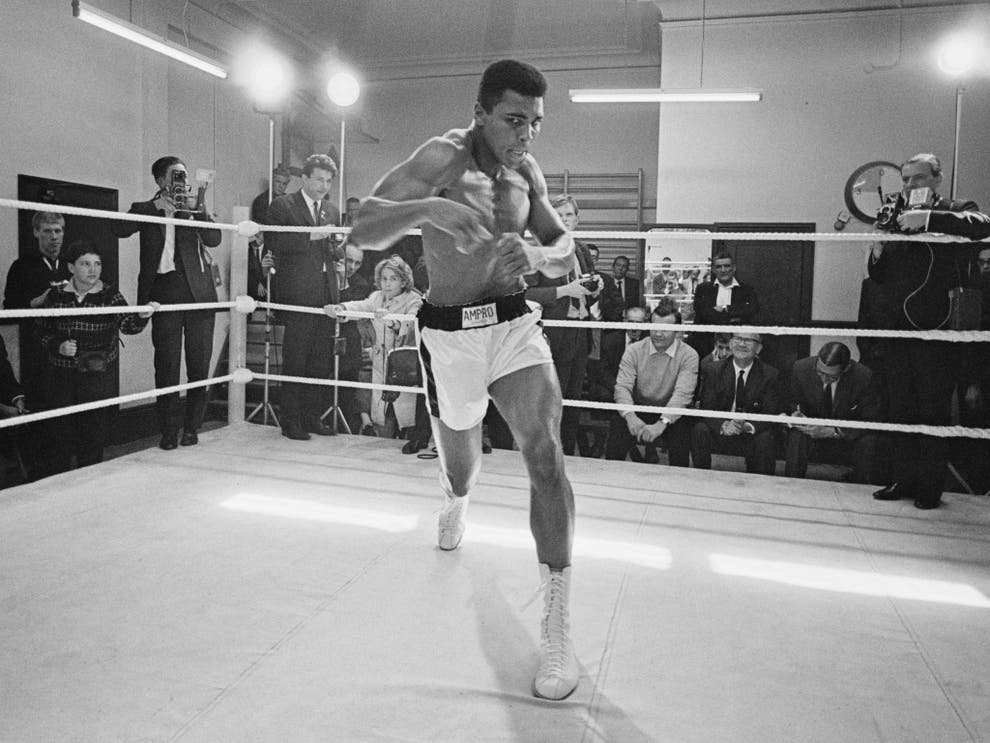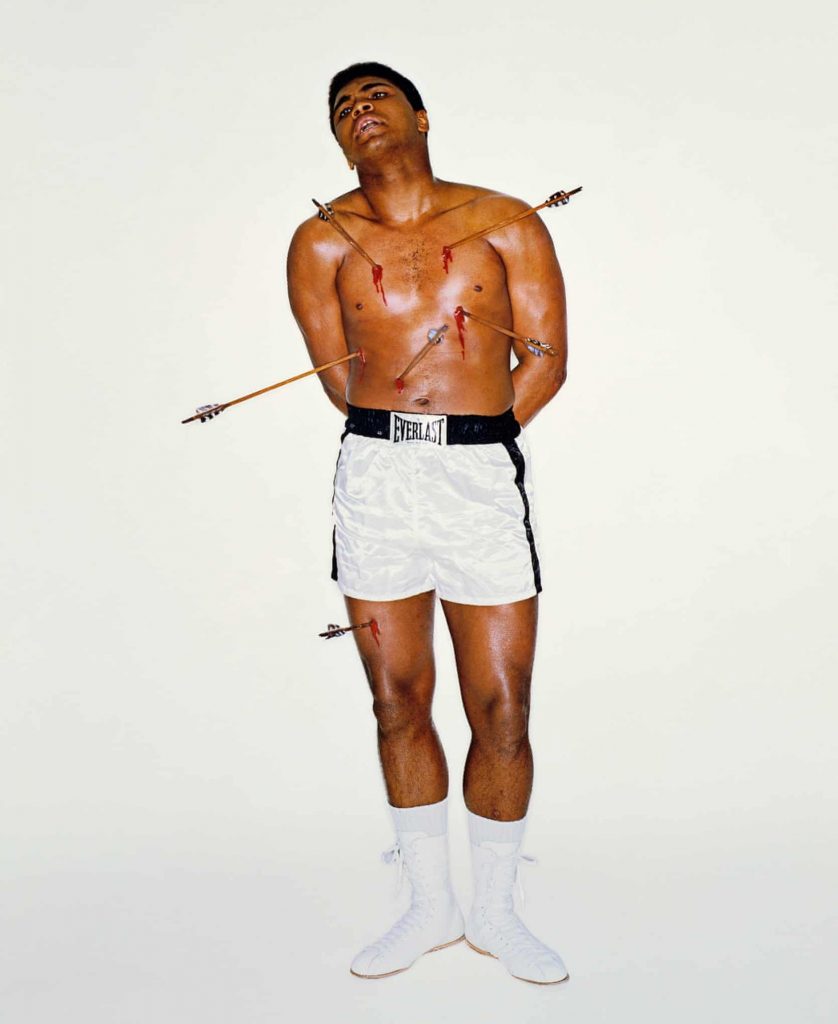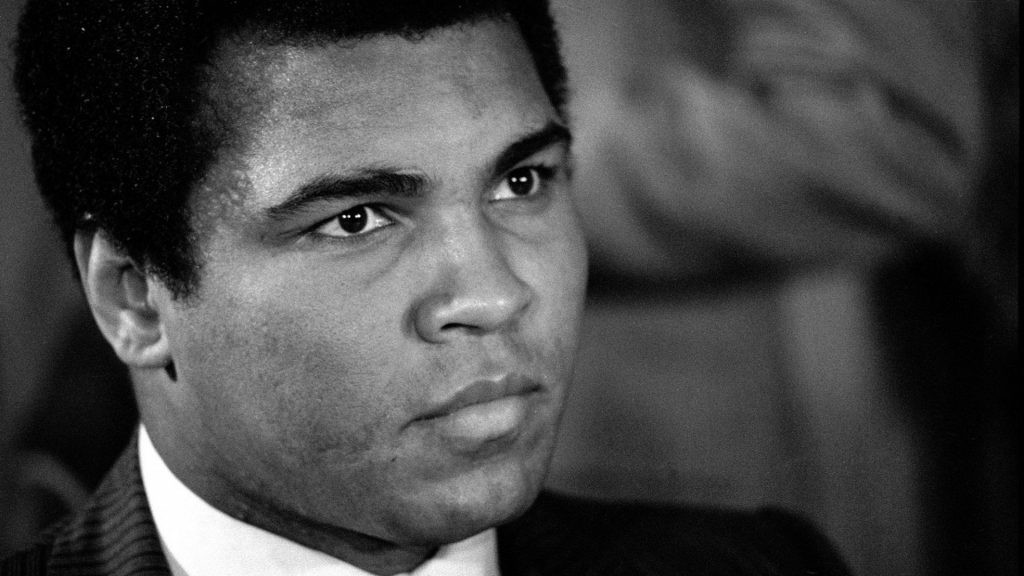
Athlete Activist: Muhammad Ali Was a Fighter In and Out of the Ring
Muhammad Ali is as famous for his athleticism in the ring as his activism outside of it. The new PBS documentary by Ken Burns delves into this multifaceted icon.
As several thousand fans packed a Louisville arena to attend Muhammad Ali’s funeral, in 2016, and as former president Bill Clinton and a surrogate for Barack Obama praised the hometown hero, it would’ve been easy to forget this fact: for years, the heavyweight champion of the world was the most hated professional athlete, perhaps the most hated person, in the United States.

Though we now remember him as one — if not, the first — great athlete-activist, his refusal to serve in the military, vocal opposition to the Vietnam War, and conversion to Islam temporarily ended his boxing career and ruined his reputation in a way that would take decades to rebuild.
Born Cassis Clay, Jr. on January 17, 1942, Ali was the great-grandson of an enslaved worker and grew up in a city that was heavily segregated. However, his obvious athleticism allowed him more mobility than most, and by the time he was in high school, Clay was already starting to travel the country boxing.

In 1964, at the age of 22, Clay took the heavyweight title from Sonny Liston after the latter conceded at the beginning of the seventh round. Though Clay had already won gold at the 1960 Olympics, it was still a stunning upset, and in the process, Clay produced one of sport’s most iconic images — Liston, on the ground, his hands over his head, while Clay stands above him, swings his right arm across his body, and shouts down.
Soon afterward, Clay formally rejected his “slave name” and became Cassius X. After he publicly converted to Islam and became affiliated with the Nation of Islam, X accepted the name given to him by the group’s founder, Elijah Muhammad, and became Muhammad Ali.
Three years later, in 1966, Ali spoke out publicly against the Vietnam War for the first time, telling a reporter, “I don’t have no personal quarrel with those Viet Congs; no Viet Cong ever called me a n-word.” And though he appeared at his scheduled induction into the military later that year, he refused to enroll and was arrested. After only 21 minutes of deliberation, a jury convicted him of five years in prison and a $10,000 fine for draft dodging. For the next four years, the case would make its way to the Supreme Court.

Meanwhile, Ali lost any of the goodwill he’d accrued during the start of his boxing career. During this time, the majority of Americans still supported the Vietnam War, and the press quickly turned on Ali, with one journalist calling him the “Black Benedict Arnold.” The boxing world rejected him as well. He was stripped of his titles, and for three years, between the prime years of 25 and 28, he was unable to get a fight anywhere in the country.
At the same time, the FBI initiated a surveillance program against him (and the Nation of Islam, Martin Luther King Jr., and other anti-war activists) that would last for years. Though Ali won the respect of civil rights activists, earning the Martin Luther King Award in 1970 and being called “a champion of justice and peace and unity” by Coretta Scott King, it took much longer for white America to re-accept him.
In 1970, a federal court forced the New York State Boxing Commission to reinstate Ali’s boxing license, and later that year he regained his heavyweight championship after defeating George Foreman. The following year, the Supreme Court overturned his draft dodging conviction. Thanks to the growing unpopularity of the Vietnam War, along with Ali’s philanthropy and diplomacy abroad, his reputation began to shift.

He would later go on to negotiate for the release of American hostages in Iraq, pressure the U.S. government to more actively support Rwandan refugees, and travel to Afghanistan as a United Nation’s “Messenger of Peace.” In 2005, George W. Bush awarded him the Presidential Medal of Freedom, the highest civilian honor possible in the United States.
However, he was first and foremost known as an athlete, and in 1996, he was asked to light the flame at the Atlanta Olympics. In 2012, he was the Olympic flag bearer in London, though his advance-stage Parkinson’s left him barely able to stand.

Ali died on June 3, 2016. In addition to the recognition from within the sports world — named “Sportsman of the Century” by Sports Illustrated and the third greatest athlete of the 20th century by ESPN — he was praised for his lifetime of activism. “I think he decided very young to write his own life story,” President Clinton said at his funeral. “I think he decided that he would not be ever disempowered. Not his race, not his place, not the expectations of others whether positive or negative would strip from him the power to write his own story.”
Dive into the life of an icon in Muhammad Ali, the new documentary from Ken Burns airing on PBS, September 19th at 8/7c.







